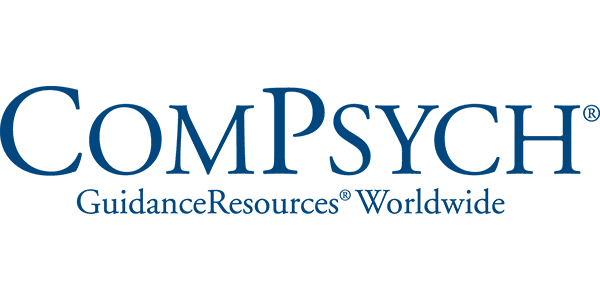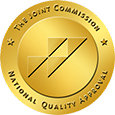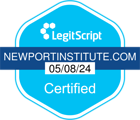If you or a loved one is struggling with prescription drug misuse, the time to act is now. Contact us today to get started on the recovery journey.
Prescription drug addiction in young adults negatively affects every area of their life. Over time, using prescription medications for pain or recreationally can lead to severe addictions that threaten young people’s mental and physical health, relationships, finances, and goals for the future.
Newport Institute’s prescription drug addiction treatment for young adults is designed to create long-term recovery by addressing the underlying issues that catalyze prescription drug misuse. Our nationwide substance use disorder treatment programs support young people ages 18–35 to recover from prescription drug addiction by processing past trauma, building resilience and self-worth, and developing healthy coping skills.
Prescription Drug Rehab for Young Adults
The most effective drug use treatment options address the underlying causes of prescription drug misuse, not just the drug use itself. In order for prescription drug rehab to result in sustainable recovery, young adults need comprehensive treatment that acknowledges and treats related mental health challenges.
Furthermore, effective treatment is vital, because a prescription drug overdose can be lethal. When a young adult overdoses on prescription drugs such as opioids, or mixes opioids with alcohol or other drugs, it can slow down their heart rate and breathing to the point that they can go into a coma or die.
Prescription drug misuse often starts when a young person uses prescribed opioid painkillers or other drugs after a sports injury or other medical issue. And before they realize the risk, they develop a chemical dependency on the prescription medications.
Questions?
All calls are always confidential.
Causes of Prescription Drug Addiction
Why do young adults start misusing prescription drugs? They might begin misusing a medication in order to relax, feel less inhibited, control appetite, improve concentration at work or their academic performance. They might even start using a drug because they received a legitimate prescription for pain or anxiety. Then they found they liked the way it made them feel and began misusing the medication.
Ultimately, problem substance use in young adults—including prescription drug misuse—is directly linked to underlying mental health issues such as trauma, depression, anxiety, bipolar disorder, or other mood disorders. The drug becomes a way to self-medicate pain and distress associated with a mental health disorder.
Once a young adult starts misusing prescription drugs regularly, the body and brain develop a dependence on the drug, both physically and psychologically. As a result, they may continue to use the drug even when it’s causing significant problems in their relationships, school or work life, and daily functioning. Moreover, a young adult who is misusing prescription medications has a higher likelihood of engaging in risky behaviors, getting in trouble with the law, having a car accident, and using illegal drugs.
Commonly Misused Prescription Drugs
Here are the three most commonly misused types of prescription drugs and how they impact the brain and body:
- Opioids: Usually prescribed to treat pain, opioid medications contain oxycodone (the active ingredient in Oxycontin and Percocet) or hydrocodone (the active ingredient in Norco). Opioid painkillers affect receptors in the brain and spinal cord, reducing pain signals and impacting areas of the brain that control emotion.
- Tranquilizers, sedatives, and hypnotics: These drugs, known as central nervous system depressants, work by slowing brain activity. This category includes mental health medications, specifically commonly misused anti-anxiety drugs, as well as prescription drugs for sleep disorders. Active ingredients include benzodiazepines and barbiturates. Brand names include Xanax, Valium, and Ambien.
- Stimulants: Stimulants increase the release of dopamine in the brain and body, and create a feeling of heightened alertness. Most often prescribed for Attention Deficit Hyperactivity Disorder (ADHD), these prescription medications include methylphenidate (in Ritalin and Concerta), dextroamphetamine and amphetamine (in Adderall), and dextroamphetamine (in Dexedrine).
Know the Facts
Young adults aged 18–25 misuse prescription drugs at higher rates than any other age group, according to the National Institute on Drug Abuse.
Signs and Symptoms of Prescription Drug Addiction in Young Adults
Red flags indicating prescription drug misuse include behavioral, psychological, and physical symptoms. Common behavioral signs include stealing or forging medication prescriptions, requesting early refills or “losing” prescriptions, and going to more than one doctor in order to get additional prescriptions.
Psychological symptoms include extreme mood swings, hostility, making poor decisions, and appearing either sedated or unusually energetic. Moreover, the dangers of prescription drugs include slowed breathing, coma, and death.
Each type of medication also creates physical effects.
Misusing prescription opioids can cause:
- Slowed breathing rate
- Sleepiness
- Confusion
- Poor coordination
- Nausea or constipation
- Low blood pressure
- Increased sensitivity to pain as tolerance of the drug increases
- Coma or death as a result of an overdose
Sedatives and anti-anxiety medications can result in:
- Dizziness and unsteady walking
- Slurred speech
- Sleepiness
- Memory issues, confusion, and poor concentration
- Slowed breathing
- Low blood pressure
- Coma or death due to an overdose
- Seizures as a result of withdrawal from the drug
Stimulants have the following physical effects:
- Anxiety, agitation, aggressiveness, and/or paranoia
- Irregular heartbeat
- High blood pressure and heart problems
- Increased body temperature, to the point of danger
- Lack of appetite
- Difficulty sleeping
- Seizures or tremors
- Hallucinations.
What’s the difference between using a prescription drug vs. misusing it?
If you’re using a prescription medication in order to get high, you’re misusing it—even if it was prescribed for you. Prescription drug misuse also includes taking a dose other than the one prescribed, or taking the medication in a manner that was not prescribed, such as grinding pills and snorting them.
In addition, using a friend’s or family member’s prescribed medications—whether or not you’re taking them for a medical condition—also constitutes prescription drug misuse.
Diagnosis and Treatment for Prescription Drug Addiction in Young Adults
Diagnosis of prescription drug addiction in young adults involves a complete physical and mental health assessment. A substance use evaluation may include any or all of the following:
- A physical exam to determine how substance use is impacting your physical health in addition to mental health
- Lab tests to find out whether substances have affected the body’s systems
- In-depth interview with a physician, psychiatrist, or other addiction specialist or healthcare provider regarding the frequency of your drug use and your behaviors regarding drug use
- A mental health screening that pinpoints underlying symptoms of trauma, anxiety, and/or depression
- Discussion of the appropriate level of care for prescription drug rehab—a residential program, an inpatient rehab, partial hospitalization, or an intensive outpatient program
What will I experience during treatment for prescription drug misuse?
The first step in treatment for prescription drug addiction is detoxing from substances. This is a medically supervised process of ridding the body of drugs. Because drug use creates a chemical dependency over time, withdrawal symptoms can be uncomfortable and even dangerous. Therefore, a detox program with medical care and sometimes medication-assisted treatment is usually necessary. Newport Institute partners with preferred detox programs to support young adults as they begin a drug rehab program. We also offer withdrawal management/detox at several young adult locations, as part of our integrated approach to substance use disorder treatment.
Once detoxing is complete, the real work of prescription drug addiction treatment begins. The most effective treatment for prescription drugs addresses physical and mental health, with care provided by a team of clinical therapists, recovery counselors, and experiential therapists. Newport Institute takes this integrated approach. Our team of addiction specialists includes psychiatrists, medical doctors, individual therapists, family therapists, life skills coaches, and recovery counselors. Our prescription drug addiction treatment addresses all aspects of a young adult’s physical and mental health to support long-term healing and recovery.
In addition, our young adult rehab helps clients uncover the root causes of their prescription drug misuse and learn coping and emotion-regulation skills to support ongoing recovery. In therapy sessions with addiction specialists, young adults develop healthy ways to work with the challenging emotions and stressors that this age group faces. One of the primary benefits of going to rehab for prescription drugs is connection with others who are also on the healing journey.

Young Adult Prescription Drug Rehab at Newport Institute
At Newport Institute, we address drug addiction treatment and substance use prevention by helping young adults process past trauma and replace destructive behaviors with healthy coping skills. Rather than addressing symptoms alone, we guide young adults to dig deeper so they can create the foundation for a thriving, substance-free life.
To achieve long-term, sustainable recovery, young people need specialized mental health services to understand and address the internal and external conditions that set the stage for a pill addiction. Hence, our integrated approach to young adult prescription drug rehab takes into account every aspect of an individual—their physical, emotional, relational, psychological, and spiritual health.
Newport addiction treatment includes individual therapy, group therapy, family therapy, life skills programming, and experiential activities like Adventure Therapy, yoga, art, and music. We have residential treatment programs for young adults around the country, as well as Partial Hospitalization and Intensive Outpatient Programs.
Know the Facts
People who stay in treatment for substance use for at least three months have substantially better outcomes and lower relapse rates.
What’s Included in Our Prescription Drug Treatment Programs for Young Adults
Newport Institute’s residential young adult drug addiction treatment programs offer more than a typical rehab for prescription drugs. During your stay, you will experience powerful healing modalities guided by caring, compassionate experts. Each client has a treatment team made up of addiction specialists who design a tailored treatment plan that includes clinical milestones, specialized counseling, and a variety of different therapy sessions.
Our residential treatment plans for both young adults and older adults may include:
Clinical Modalities
- Motivational Enhancement Therapy to break through resistance to treatment
- Cognitive Behavioral Therapy to shift unhelpful thinking and build coping skills
- Dialectical Behavioral Therapy to increase stress tolerance
- Marital and family counseling to create greater harmony among family members
- Recovery counseling to build new, healthy habits
Experiential
- Adventure Therapy to foster peer community
- Yoga and meditation to increase mindful self-awareness
- Music therapy as a form of self-expression
- Culinary arts to strengthen self-care skills
- Art therapy to support emotional processing
- Mixed Martial Arts to build self-mastery and confidence
Newport Institute also has a robust alumni program, providing support groups and resources to help ensure ongoing recovery.
Where to Find Our Substance Use Treatment Centers
Newport Institute locations are in close proximity to multiple cities across the United States. We treat young adults ages 18–35 (depending on location) and their families from all 50 states and abroad, providing a full continuum of care. Our residential and outpatient treatment centers offer serene environments, within beautiful natural settings, where young adults can find long-term healing and recovery from prescription drug addiction and related mental health conditions.
Newport Institute’s prescription drug addiction treatment programs for ages 18–35 are located in Northern and Southern California, Connecticut, and Minnesota, with more programs in development in areas where young adult mental health and substance use treatment are most needed.
Get Started Now
Fill out the form above to set up a confidential conversation with one of our admissions experts. We realize that the hardest part of seeking treatment is getting started, and we’re here to help make that part easier, 24 hours a day, 7 days a week.
Concerned about how to pay for addiction treatment? Newport Institute works with most major insurance companies, both in and out of network, and we have a dedicated team of specialists to help you navigate your coverage.







Frequently Asked Questions
What is an example of prescription drug misuse?
Who is most at risk for prescription drug misuse?
What are the four 4 types of prescription medications?
What are some types of treatment for prescription drug misuse?



